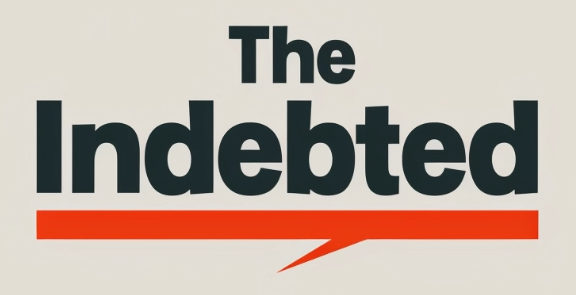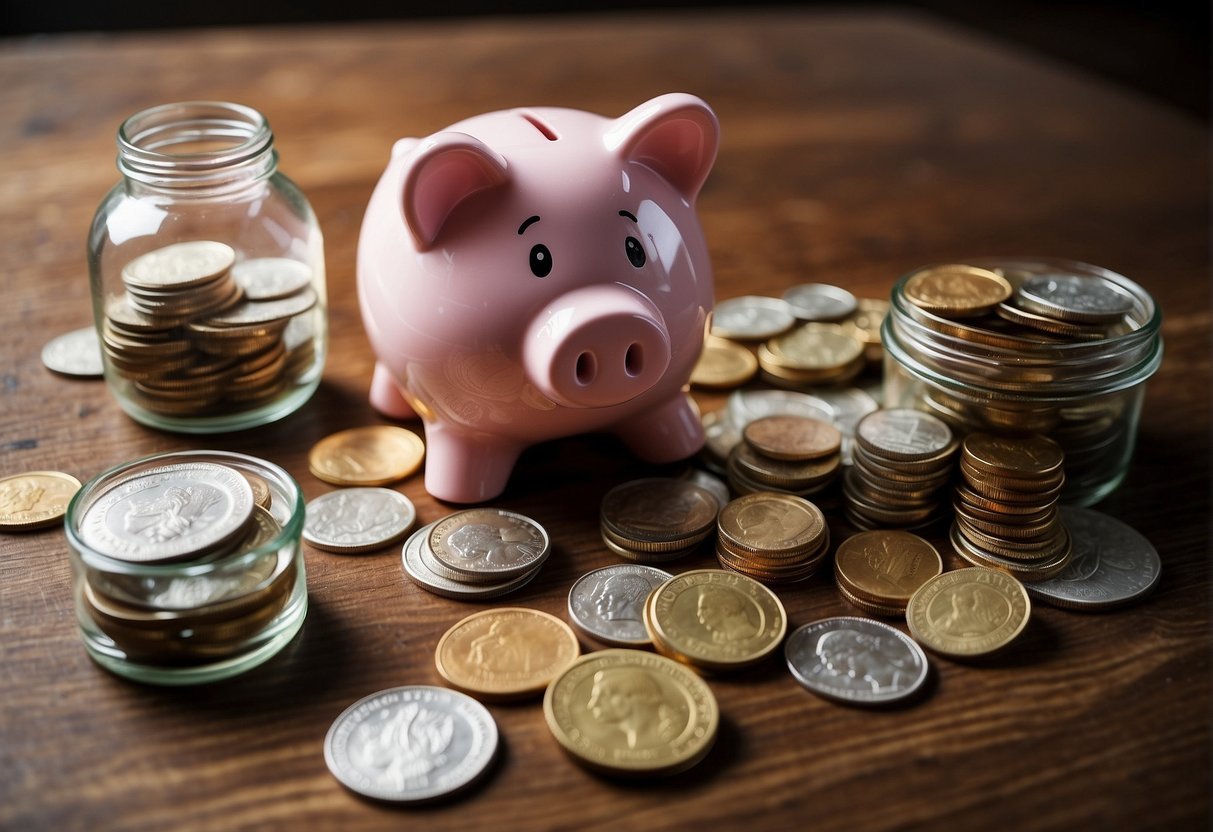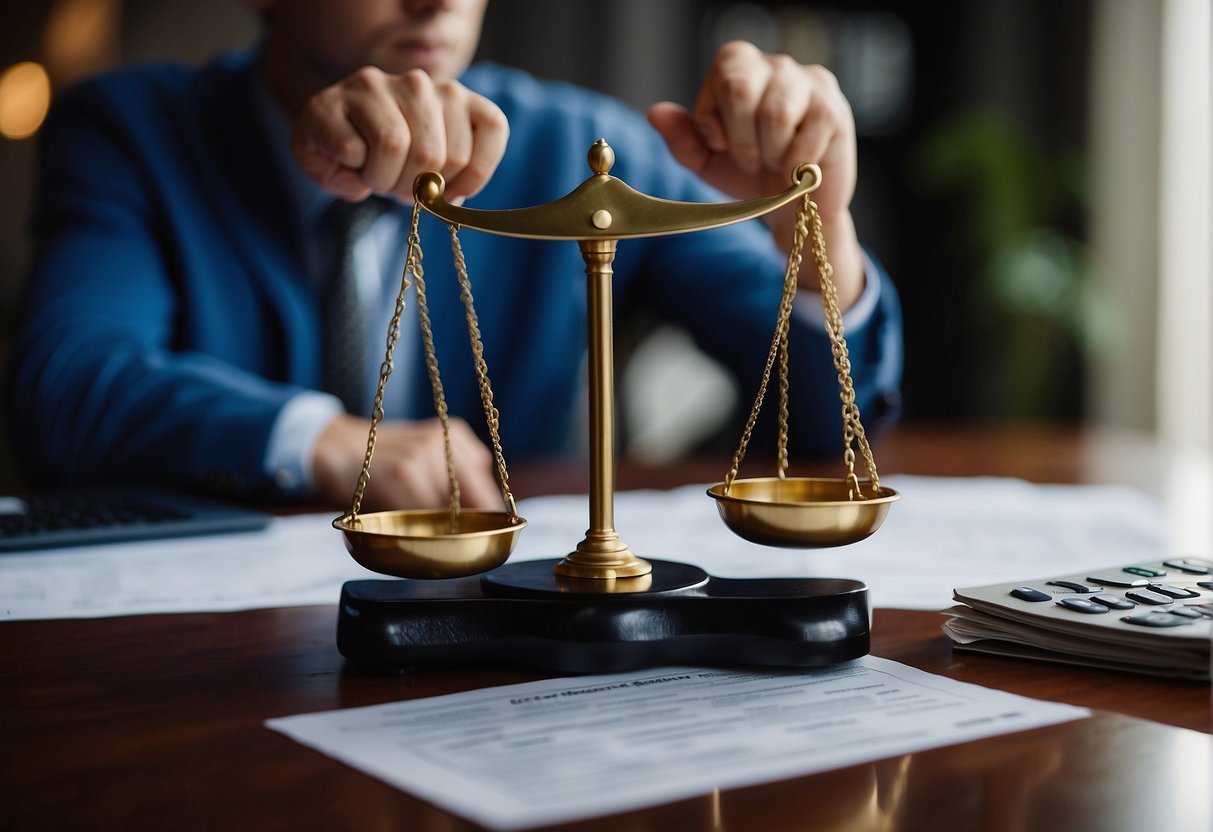Overcoming massive debt can be an incredibly challenging feat, but it is possible. Many people have successfully tackled their debt and come out on the other side with a newfound sense of financial freedom. These success stories can be incredibly inspiring and offer hope to those who may be struggling with their own debt.
One common thread among many of these success stories is a commitment to making changes. This may involve cutting back on expenses, finding ways to increase income, or a combination of both. It can also involve seeking out professional help, such as working with a financial advisor or credit counselor. Ultimately, it requires a willingness to take action and make changes in order to achieve financial freedom.
In this article, we will explore some real-life success stories of people who overcame massive debt. These stories will offer insights into the strategies and mindset shifts that helped these individuals achieve financial freedom. Whether you are currently struggling with debt or simply looking for inspiration to take your own financial journey to the next level, these stories are sure to offer valuable insights and motivation.
Understanding Debt and Its Impact
Debt is a financial obligation that arises when an individual borrows money from a lender or creditor with the promise to repay the borrowed amount with interest over a specified period. Debt can be in different forms, ranging from credit card debt, mortgage, student loan debt, and personal loans.
Types of Debt: From Credit Cards to Mortgages
Credit card debt is one of the most common types of debt that people struggle with. It is a form of revolving debt that accrues interest on the outstanding balance. Credit card debt can be a result of overspending, emergencies, or unexpected expenses.
On the other hand, mortgage debt is a long-term debt that people incur when they purchase a home. It is a secured debt that involves collateral, which is the property being purchased. Mortgage debt is often considered a good debt because it allows people to own a home, which can appreciate in value over time.
The Psychological Burden of Debt on Mental Health
Debt can also have a significant impact on an individual’s mental health. The stress and anxiety associated with debt can lead to depression, sleep disorders, and other mental health issues. People in debt often feel overwhelmed and helpless, which can affect their daily lives and relationships.
Strategic Budgeting and Planning
When it comes to overcoming massive debt, strategic budgeting and planning are essential. Here are a few tips and tools that I found helpful when creating a budget for debt repayment.
Creating a Strict Budget for Debt Repayment
One of the most important steps in overcoming massive debt is creating a strict budget. This means taking a hard look at your income and expenses and cutting out anything that isn’t necessary. When I was creating my budget, I started by making a list of all my monthly expenses, including rent, utilities, groceries, and transportation. Then, I looked for areas where I could cut back, such as eating out or buying clothes.
It’s important to be realistic when creating a budget. Don’t set yourself up for failure by cutting out everything that brings you joy. Instead, look for areas where you can make small changes that will add up over time. For example, instead of eating out every day, try packing your lunch a few times a week.
Tools and Tips for Effective Budgeting
There are many tools and tips available to help you create an effective budget. One tool that I found helpful is a budgeting app, such as Mint or YNAB. These apps allow you to track your spending and set financial goals. They can also send you alerts when you’re getting close to your budget limit.
Another tip for effective budgeting is to automate your savings. Set up automatic transfers from your checking account to your savings account each month. This will help you build up your emergency fund and save for long-term goals, such as a down payment on a house.
Real-Life Debt Reduction Strategies
As someone who has personally overcome massive debt, I know firsthand that the journey to financial freedom can be a long and difficult one. However, with the right strategies and mindset, it is possible to achieve your goal of becoming debt-free. Here are a few real-life debt reduction strategies that have worked for me and others:
The Snowball Method: Small Wins Lead to Big Successes
One of the most effective debt reduction strategies is the snowball method. This involves paying off your debts in order of smallest to largest balance, regardless of interest rate. By focusing on small wins first, you gain momentum and motivation to tackle larger debts.
To get started with the snowball method, make a list of all your debts in order of smallest to largest balance. Then, make minimum payments on all debts except the smallest one. Put as much extra money as possible towards paying off the smallest debt. Once that debt is paid off, take the money you were putting towards it and apply it to the next smallest debt. Repeat this process until all debts are paid off.
Increasing Income and Frugality: Side Hustles and Sacrifices
Another effective way to reduce debt is by increasing your income and practicing frugality. This involves finding ways to earn more money and cutting back on unnecessary expenses.
One way to increase your income is by starting a side hustle. This can be anything from freelancing to selling items online. By earning extra money, you can put more towards paying off your debts.
Practicing frugality also plays a big role in debt reduction. This involves cutting back on unnecessary expenses and making sacrifices in the short-term to achieve long-term financial goals. Some ways to practice frugality include cooking meals at home instead of eating out, canceling subscriptions and memberships you don’t use, and finding free or low-cost entertainment options.
Success Stories: From Overwhelmed to Debt-Free
Anna’s Journey: Education and Discipline
I was once buried in debt, and it seemed like there was no way out. However, I decided to take control of my finances and learn everything I could about personal finance. I read books, attended seminars, and watched videos to educate myself on how to manage my money better.
One of the most important things I learned was the importance of discipline. I created a budget and stuck to it religiously. I cut back on unnecessary expenses and focused on paying off my debts. It wasn’t easy, but I knew it was necessary if I wanted to become debt-free.
Through hard work and discipline, I was finally able to pay off all my debts. It was an incredible feeling to be debt-free, and it was all thanks to the education and discipline I had gained.
Carrie Smith’s Path: Side Jobs and Meal Planning
Carrie Smith’s story is another inspiring success story of someone who was able to overcome massive debt. She was once in over $14,000 of credit card debt, but she refused to let that define her financial future.
Carrie took on side jobs to increase her income and put all the extra money towards her debt. She also started meal planning to save money on groceries and avoid eating out.
With her hard work and determination, Carrie was able to pay off her debt in just 14 months. Her story is a testament to the power of side hustles and smart budgeting.
Maintaining Financial Freedom
Now that I have achieved financial freedom by paying off my massive debt, it’s important to maintain it. Here are some tips that have helped me stay on track.
Building an Emergency Fund
One of the most important things I did to achieve financial freedom was to build an emergency fund. I set aside a portion of my income every month to build up this fund, which has helped me avoid going into debt in case of unexpected expenses. I recommend having at least three to six months’ worth of expenses saved up in an emergency fund.
To make sure I stay on track with building my emergency fund, I created a budget that includes a line item for savings. I also automated my savings by setting up automatic transfers from my checking account to my emergency fund every month.
Strategies for Staying Out of Debt
To stay out of debt, I use a combination of strategies. First, I make sure to live within my means by creating and sticking to a budget. I track my expenses and adjust my budget as needed to make sure I’m not overspending.
I also avoid using credit cards unless I can pay off the balance in full each month. If I do use a credit card, I make sure to only charge what I can afford to pay off.
Finally, I have a plan in place for paying off any debt that I do incur. I prioritize paying off high-interest debt first and make extra payments whenever possible to pay off debt faster.





